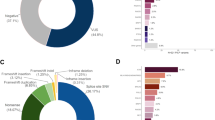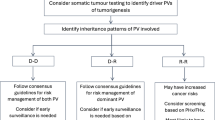Abstract
Some environmental carcinogens may be responsible for a modest increase in the numbers of cancers after years of exposure. Economic or political factors weigh against widespread bans of carcinogens. However, lists of chemicals and agents that cause cancer assume that everyone is equally susceptible to their carcinogenic effects.Hereditary cancer gene mutations can target specific tissues if they are exposed to a carcinogen and the hereditary deficit impairs normal protective responses. Mutation carriers should then have higher risks for specific cancers caused by specific carcinogens.For example, it can be predicted that BRCA1 or BRCA2 mutation carriers should be highly susceptible to the carcinogen formaldehyde. High formaldehyde levels can overwhelm normal enzyme detoxification systems or detoxification genes may be inadequate or missing. Formaldehyde that is not detoxified causes strands of DNA to cross-link to each other and to nearby proteins. Carriers of mutations in BRCA1/2 dependent pathways are deficient in the ability to undo these cross-links.Human myeloid leukemias are linked to formaldehyde. Inherited biallelic BRCA2 gene defects and other defects in BRCA1/2 mediated pathways dramatically increase risks for myeloid leukemia, even among infants. In 12 of 15 studies, heterozygous BRCA1 or BRCA2 mutations increase risks for myeloid leukemias. Moreover, chromosome arms lost in hereditary breast cancers encode enzymes essential for formaldehyde metabolism. BRCA1/2 mutation carriers may reduce their very high cancer risks by lowering their exposure to formaldehyde.Cancers associated with many other hereditary gene deficits can also be stimulated by distinct environmental hazards. Widespread education could prevent or delay some cancers in mutation carriers.
Similar content being viewed by others
Article PDF
Author information
Authors and Affiliations
Corresponding author
Rights and permissions
About this article
Cite this article
Friedenson, B. Inherited mutations impair responses to environmental carcinogens: Cancer prevention in mutation carriers. Nat Prec (2011). https://doi.org/10.1038/npre.2011.6024.1
Received:
Accepted:
Published:
DOI: https://doi.org/10.1038/npre.2011.6024.1



